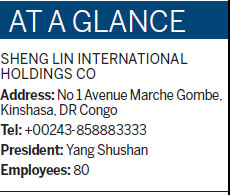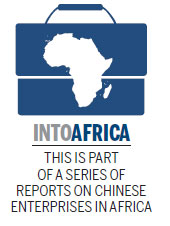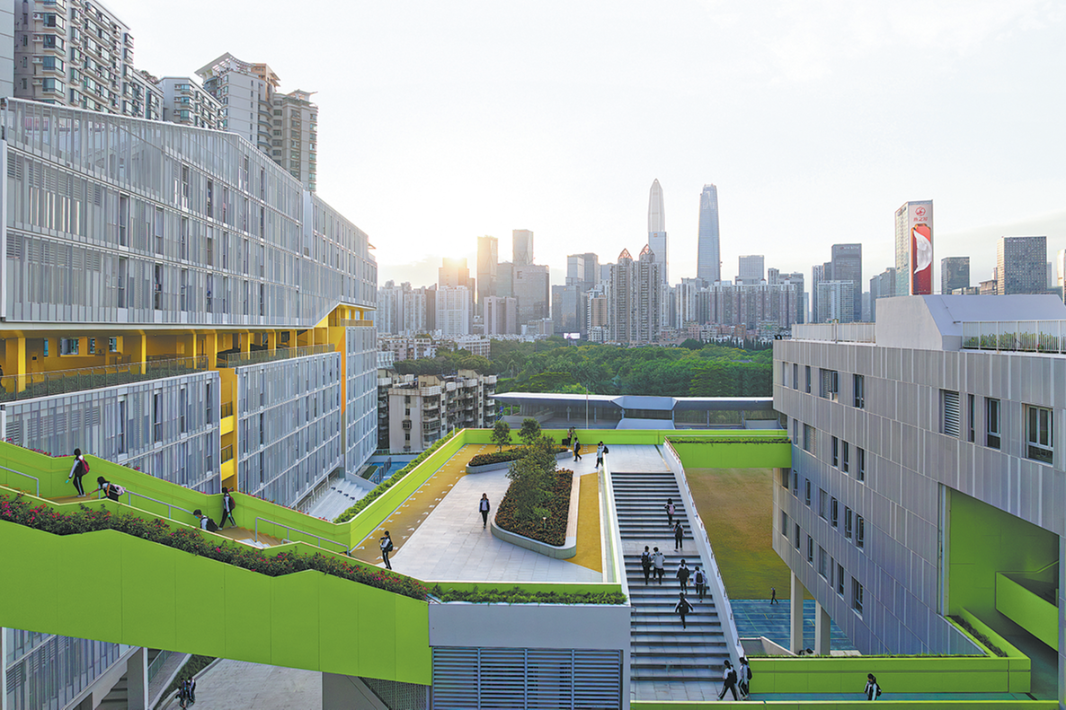'Temporary keeper' of the forest

63-year-old owner of tropical tract in Congo overcomes dangers and instability to find success
Yang Shushan often has to explain that his given name literally means wood and mountain and that it was bestowed after birth, not after he founded his company.
It is easy to see why clients find it difficult to believe him. His company, Sheng Lin International Holdings Co, owns the development rights to a 514,000-hectare patch of rain forests in the Democratic Republic of the Congo.
In 1998, Yang arrived in the capital, Kinshasa, at the time of the Second Congo War, in which rebels waged deadly battles against a newly formed transitional government.
"Tanks and roadblocks were everywhere and Europeans had evacuated the country, which was in chaos. But I was not afraid," says Yang, who had served as a People's Liberation Army doctor before working in the African country as a middleman trading nonweaponized military supplies.
After working in Africa for about eight years in a number of countries, such as Tanzania and South Africa, Yang decided to set up his own business. His vision and courage to establish a company in Congo, which is rich in mineral and metal resources but has one of the lowest per capita incomes in the world, stemmed from his family connections with Laurent Kabila, the former Congo president, who served from 1997 until his assassination in 2001.
In 1968, Kabila studied at a military college in Nanjing, Jiangsu province, that also trained Yasser Arafat and other revolutionary leaders. Yang's father-in-law was an educator at the college and one of many teachers who trained Kabila.
About three decades later, Yang had the opportunity of meeting Kabila at a dinner with other African leaders. Kabila, the only leader from the delegation who could speak some Mandarin, walked up to Yang and surprisingly discovered their connection.
"He invited me to do business in Congo and promised me tracts of rain forest at a very low price," Yang says. "Though I refused his offer, I made a decision to buy up some land."
Since 2002, the Congo government has stopped issuing tracts of rain forest to logging companies under a financial deal with the World Bank that aims to protect the bio-diverse land.
Yang's forest accounts for 4 percent of the total exploitable rain forest coverage that is home to more than 200 varieties of trees, including the rare ebony.
After meeting Kabila, Yang bought a 50-year lease on a large chunk of Congo rain forest in 1998 from a tribal leader. He says he is the first Asian to be given the rights to a rainforest in Congo.
"I feel very proud to have been given the forest," Yang says.
Yang says he did not use his personal relationship with Kabila and did everything legally to buy the land.
"People said doing business in Africa has shortcuts as long as you have connections with politicians and the government. Perhaps that's true. But to win the trust of the African people and to build long-term business cooperation, honesty is the most important quality."
Yang's startup was fraught with risks and difficulties, namely the costly living expenses in Kinshasa. He says the country's undeveloped infrastructure was also a major barrier to exploring resources in the land, citing the four-day trip time needed to travel from Kinshasa to his tract of rain forest 400 kilometers away.
"There was no road and transport at all and the powerful off-road vehicles could go through the muddy paths at a very slow speed."
After a road was built on his land with the financial support of the World Bank and China, Yang began selling wood to furniture companies in Europe and China.
Yang's company, which at one time had 300 employees, now employs 60 Congo residents and 20 Chinese. The economic valuation of Yang's forest is worth over $1 billion dollars.
In 2009 he began bringing more value to his forest without logging a single tree. He decided to use his land in carbon trading markets, in which companies that give off high amounts of emissions can purchase carbon offsets in different countries.
The Congo Basin holds about 8 percent of the world's forest-based carbon. These forests also affect rainfall across the North Atlantic, which is crucial to the future of climate stability.
Yang had planned to list his company on Euronext Paris but the UN climate change conference in 2009 led to a dramatic downturn in carbon trading.
"The financial crisis also cast a shadow on the business," says Yang.
Currently, his son manages Sheng Lin International Holdings Corp. Yang, after buying a diamond mine in 2006, is working with a Chinese company to produce curtains that can ward off mosquitoes.
During his 15 years in the Congo Basin, Yang realized it was important to give back to the local residents. He says he often helps residents buy medicine and supplies and has been recently helping to finance a local primary school and church.
"I am just a temporary keeper of the forests of the locals."
wangru@chinadaily.com.cn
| Yang Shushan with African children. Provided to China Daily |
| Yang Shushan does business research in Africa. Provided to China Daily |


(China Daily Africa Weekly 10/31/2014 page2)
Today's Top News
- China to formulate plan on expanding domestic demand for 2026-2030
- Xi congratulates Central African Republic president on reelection
- Civil aviation readies for record rush
- Food can be re-engagement recipe for Beijing, Ottawa
- Early gains follow new customs operations in Hainan
- Facts on the ground: reading China's economy
































